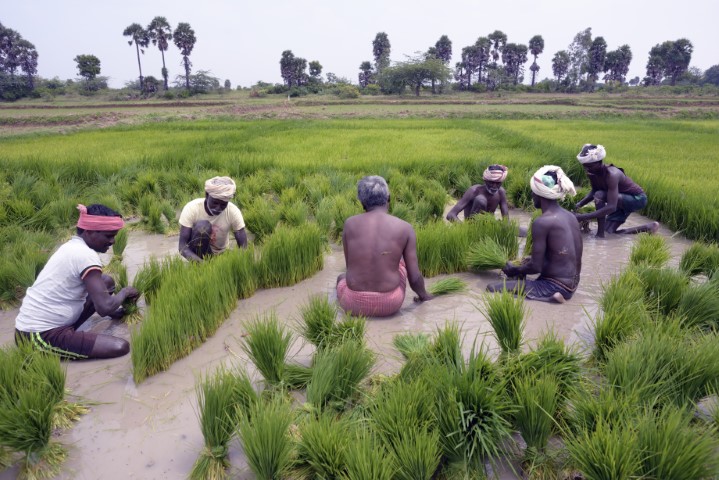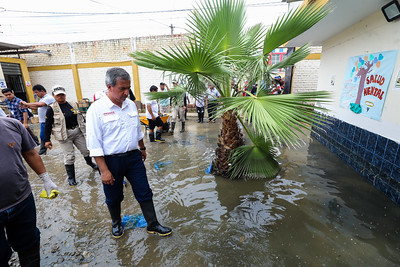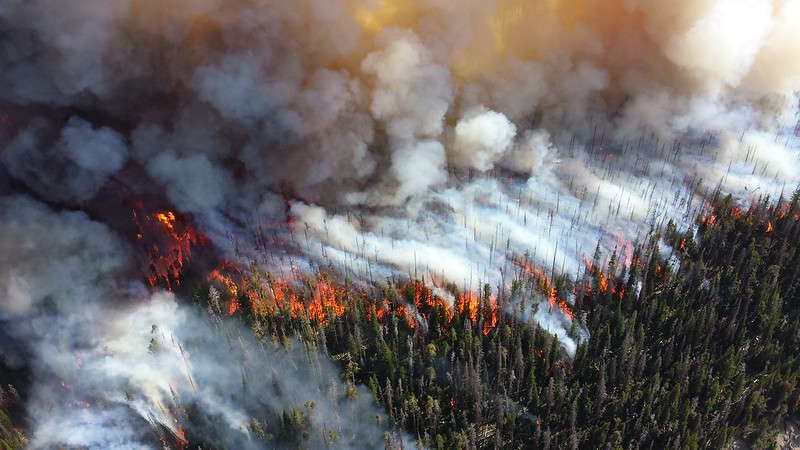The response to the climate emergency must also meet the urgent need to reduce inequalities

Climate experts warn that the consequences of global warming are happening much faster and more unpredictably than expected. Unfortunately, recent events prove this without a shadow of a doubt. Record temperatures in India during May, deadly torrential rains in Recife, Brazil a few days ago: disasters are on the rise and are affecting the poorest populations first. Emmaus groups, who take in people excluded from our societies on a daily basis, are not spared and here they tell us their stories.
For several weeks, the Indian population suffered temperatures of up to 50°C, compounding the daily problems of the poorest people, whose living conditions in overcrowded slums, with poor access to drinking water and no electricity, make it impossible to withstand such extremes. Given that hundreds of millions of Indians depend on agriculture for their livelihoods and that these heat waves and droughts are set to become more frequent, the consequences on poverty are alarming. Poppy John Xavier, member of Emmaus Kudumbam in India, explains more. “The impact of climate change on agriculture is one of the major issues in India as it is an agricultural country with 15% of its land irrigated by rivers, 15% by tanks and boreholes and 70% by rainfall. Over the past four decades, the number of droughts has increased every five years, as has the gap between two rainy days. Crop loss and debt are compelling the farmers to migrate from their village to urban cities where they are compelled to live in slums.”
The same extremes can be seen in Recife, the north-eastern region of Brazil, which was recently devastated by rain. Climate change is accelerating the frequency and violence of these extreme rainfalls and devastating entire neighbourhoods, the vast majority of which are very poor. Leandro Patricio, member of the Emmaus Recife group, tells us more. “According to local media, there are already 127 confirmed deaths and over 9,000 have lost their homes. This is the greatest natural disaster in the history of the state of Pernambuco. Local governments are forced to house families in state schools.” Today, Recife is one of world’s cities most threatened by climate change. It also has the most alarming poverty levels in the country due to several factors, such as unequal distribution of land and income, poor provision of public services and a predominantly agrarian economy. Poor people, who have no choice but to live in housing built in high-risk areas, are the first victims of these disasters.
The impact of global warming on the economy, society, health and food security is becoming more important than ever as it affects all regions of the world, but what responses have actually been provided up to now?
According to the IPCC, the top 10% of households account for 34-45% of global consumption-related CO2 emissions. Two thirds of them live in developed countries. What does this tell us? Climate justice and social justice are intrinsically linked and it is up to the richest countries and their governments not only to help the first victims of climate change, but also to tackle inequalities. Here again, Emmaus groups are the first to set an example, even though their resources are limited. As Poppy John Xavier explains, “Kudumbam has been promoting organic farming by providing classes on organic farming and climate resilient seeds. We educate the farmers to shift from mono crop to diversified crops, which ensure food security. We show them how they can adopt different water retention techniques. We educate the university students on climate change and the need to change society by adopting different techniques which would help to protect the environment.”
More awareness is urgently needed. The $100 billion per year pledged by developed countries at COP15 in 2009 to help the poorest countries fight climate change has still not been delivered. Last week, the United Nations organised a major international environmental conference, the Stockholm+50 Summit, on the 50th anniversary of the first international climate conference. At the close of the summit, member states and stakeholders adopted a number of recommendations, including placing human well-being at the centre of a healthy planet and prosperity for all, recognising and implementing the right to a clean, healthy and sustainable environment, and adopting systematic changes in the way our economic system works. Let’s hope that governments will now put their money where their mouths are, because in all this time they have not come very far given the urgency of the changes that need to be made.


